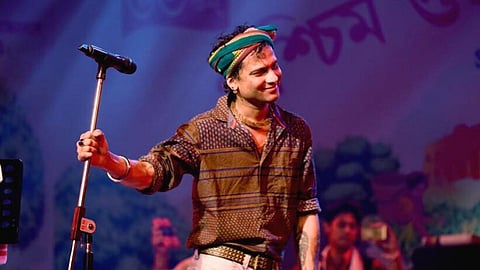
- Home
- Live Blog
- Breaking News
- Top Headlines
- Cities
- NE News
- Sentinel Media
- Sports
- Education
- Jobs

Guwahati: As Assam and the nation commemorate the first birth anniversary of Zubeen Garg, the celebrated singer and cultural icon, memories of his remarkable journey continue to inspire. Born Jibon Borthakur in Assam, he later adopted the surname Garg, marking his evolution from a local prodigy to a musical sensation known nationwide.
Zubeen launched his professional music career at the young age of 19 with the release of his debut album, Anamika, in 1992. The album became an instant success across the Northeast and revolutionised the regional music scene. This early triumph paved the way for a string of popular albums including Maya, Asha, and Pakhi.
Venturing beyond regional boundaries, Zubeen moved to Mumbai to carve a niche in the Hindi film industry. He contributed to numerous albums and movies, but it was his song “Ya Ali” from the 2006 film Gangster that catapulted him to nationwide fame and remains one of his most iconic hits.
Over his prolific career, Zubeen recorded more than 32,000 songs, singing in nearly 40 languages including Assamese, Hindi, Bengali, Oriya, Marathi, Punjabi, Kannada, and even Nepali. In Assam, he was affectionately called Luit Kontho or “the Voice of the Brahmaputra,” a fitting tribute to his soulful voice and vital role in shaping the cultural identity of his homeland.
Zubeen’s personal and creative life was closely intertwined with his wife, Garima Saikia Garg, a designer and producer. Together, they collaborated on several major projects, including the Assamese hit film Mission China, blending their artistic and personal partnership to leave an indelible mark on Assamese cinema and beyond.
As the nation reflects on his legacy, Zubeen Garg remains a symbol of cultural pride and musical excellence, remembered for his extraordinary talent and the powerful resonance of his voice.